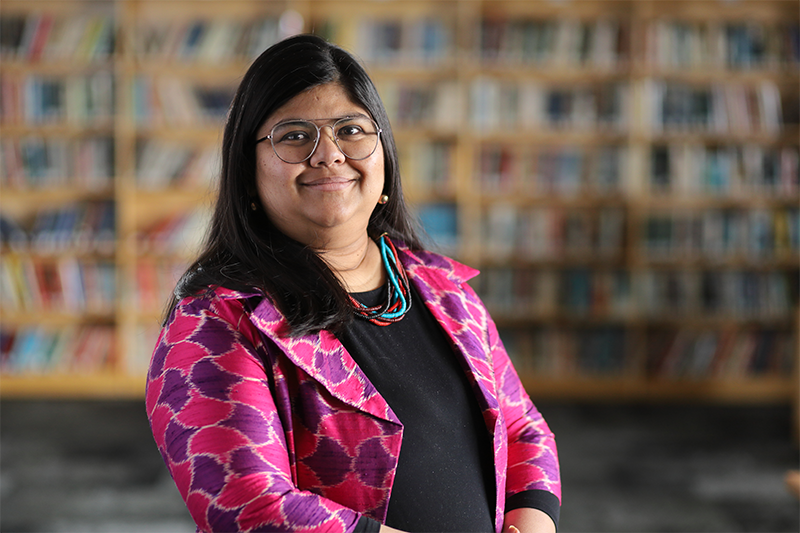Being 'ordinary' can be extraordinary
August 28, 2023 - Beth Brauer
Faculty Spotlight: Sejuti Das Gupta

Sejuti Das Gupta is an assistant professor in James Madison College at Michigan State University. She completed her doctoral studies from the School of Oriental and African Studies, University of London. She received the Felix Scholarship to conduct her doctoral research in Development Studies. Her book “Class, Politics and Agrarian Policies in Post-liberalisation India,” was published by Cambridge University Press in 2019. Das Gupta was a featured speaker during the 2023 TEDxTalks at MSU.
Hometown: Kolkata, India
What are your current research projects?
I have three current projects. "Making ends meet: Women’s Work, the Care Sector and Regional Informal Economies: Detroit," "Agrarian Transformation and Inequality in India," "Democracy, Development and Inequality: A case study of India."
The first project is something I am working on with Professor Louise Jezierski. We are examining how women workers and employers navigated informal care and personal service sectors of the Detroit metro region.
The second includes a team of researchers. We examine high-value crops such as floriculture to understand the agrarian transformation unfolding in India on a gender-class axis.
"Democracy, Development and Inequality: A case study of India" is a book project to bring together issues faced in democracy and development, where we find wider representation and deepening inequality to be taking place simultaneously.
Which courses do you teach?
MC 230 - Culture and Politics in Comparative Perspective focuses on concepts of identity, nation and power in multiple post-colonial nation states, and attempts to have students understand the three kinds of social justice.
MC 386 - Women and Power in Comparative Perspective is about understanding three kinds of relations between gender and power: structure, institution and agency, and see their interplay in different developmental contexts.
MC 390 - Theory and Practice: For the Sake of Arguments. This course teaches students to learn and practice the skills of a good argument, based on evidence and a relevant theory.
MC 390 - Paradox of Development: Cultural Identity and Development in South Asia. The focus of this course examines concepts of 'nation' and 'nationality' in South Asia.
MC 493 - Class Matters: Interlocking Identities and Nation Building. This course aims to teach the root causes of structural inequality. We apply these conceptual categories to the U.S., India and Botswana to validate its applicability in various national contexts.
In addition to these courses, I also co-direct two programs: Madison Diversity Leadership Program and the Global Development in South Asia. The first aims to prepare students who aspire to be leaders either with the government or civil society institutions. The second program promotes learning about development in global south.
What motivated you to do TedX and to explore this idea of making the 'ordinary', 'extraordinary'?
The career path I took was uncertain and weird but when I look back, all the pieces came together, and I make a decent living now with it. As an 18-year-old, interested in political philosophy and then fieldwork, there was a lot of misgiving and hesitations.
While I was on that journey and decided not to be a lawyer or a bureaucrat, I had moments of self-doubt. Was I giving up my chance to be the extraordinary? But now I feel quite sure about the steps I took. The one thing I knew was I wanted to work for people and with ordinary people, and let that guide my decisions, rather than allow external gratifications and rules made by others guide me. In the process, these interactions with so-called ordinary people paved a path for extraordinary learning.
The TedX talk gave me the opportunity to share my story with students and younger people looking to decide their career paths and find their callings today. As they say, nothing succeeds as success, but what that success is, should be defined by us!

